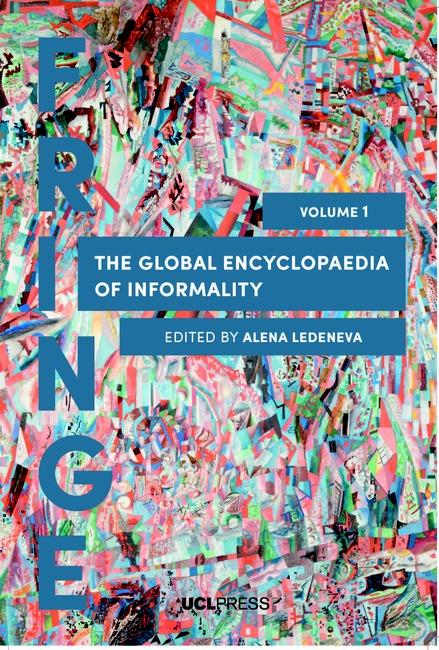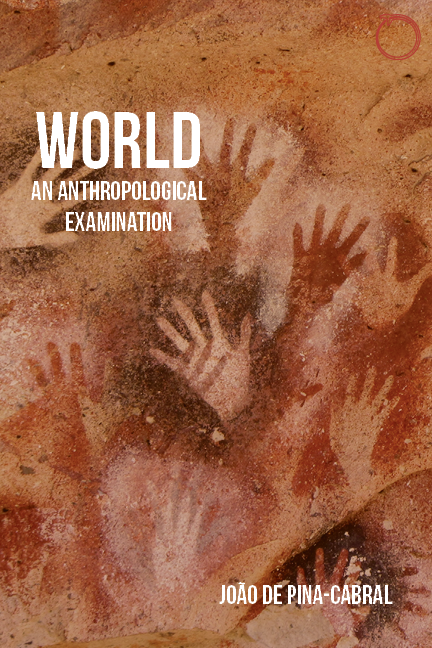The Global Encyclopaedia of Informality, 2 vols. (2018)
Filed under book, online resource | Tags: · blat, commodity, corruption, encyclopedia, gift, governance, informal economy, informality, market, social science, society, sociology, solidarity

“Alena Ledeneva invites you on a voyage of discovery to explore society’s open secrets, unwritten rules and know-how practices. Broadly defined as ‘ways of getting things done’, these invisible yet powerful informal practices tend to escape articulation in official discourse. They include emotion-driven exchanges of gifts or favours and tributes for services, interest-driven know-how (from informal welfare to informal employment and entrepreneurship), identity-driven practices of solidarity, and power-driven forms of co-optation and control. The paradox, or not, of the invisibility of these informal practices is their ubiquity. Expertly practised by insiders but often hidden from outsiders, informal practices are, as this book shows, deeply rooted all over the world, yet underestimated in policy. Entries from the five continents presented in this volume are samples of the truly global and ever-growing collection, made possible by a remarkable collaboration of over 200 scholars across disciplines and area studies. By mapping the grey zones, blurred boundaries, types of ambivalence and contexts of complexity, this book creates the first Global Map of Informality. The accompanying database (www.in-formality.com) is searchable by region, keyword or type of practice.”
Edited by Alena Ledeneva, with Anna Bailey, Sheelagh Barron, Costanza Curro, and Elizabeth Teague
Fringe series
Publisher UCL Press, London, 2018
Creative Commons BY 4.0 License
ISBN 9781911307907 & 9781787351899
xxix+434 & xxix+538 pages
Publisher, Vol. 2
OAPEN, Vol. 2
WorldCat, Vol. 2
Volume 1: PDF, PDF (10 MB)
Volume 2: PDF (15 MB)
Online resource (wiki)
João de Pina-Cabral: World: An Anthropological Examination (2016)
Filed under book | Tags: · anthropology, imagination, ontogeny, ontology, personhood, society, world

“What do we mean when we refer to world? How does the world relate to the human person? Are the two interdependent and, if so, in what way? What does world mean for an ethnographer or an anthropologist? Much has been said of worlds and worldviews, but do we really know what we mean by these words? Asking these questions and many more, this book explores the conditions of possibility of the ethnographic gesture, and how these shed light on the relationship between humans and the world in the midst of which they find themselves.
As Pina-Cabral shows, recent decades have seen important shifts in the way we relate human thought to human embodiment—the relation between how we think and what we are. The book proposes a novel approach to the human condition: an anthropological outlook that is centered around the notions of personhood and sociality. Through a rich confrontation with ethnographic and historical material, this work contributes to the ongoing task of overcoming the theoretical constraints that have hindered anthropological thinking over the past century.”
Publisher HAU Books, Chicago, 2016
Malinowski Monographs series, 1
Open access
ISBN 9780997367508, 0997367504
232 pages
Viewpoint Magazine, 5: Social Reproduction (2015)
Filed under magazine | Tags: · capitalism, labour, life, political economy, politics, production, society, work

“Today, amidst a changed political and class landscape, strategy should take precedence over fidelity to the received canon. The activities of social reproduction remain the field of powerful class antagonisms.”
The issue includes 30 articles.
Edited by Asad Haider and Salar Mohandesi
Published November 2015
Creative Commons BY-NC License

